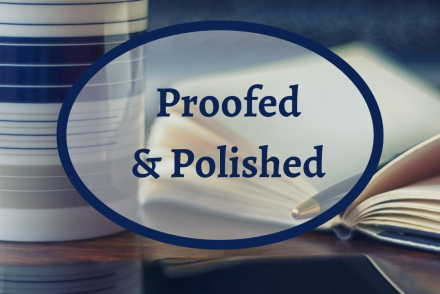
Proofed and Polished
Common Mistakes I See When Proofreading: Vocabulary, Part 1
Vocabulary Mistakes I’ve been proofreading a pretty wide variety of material lately—master’s dissertations, personal letters to family, freshman film…
October 10, 2020


